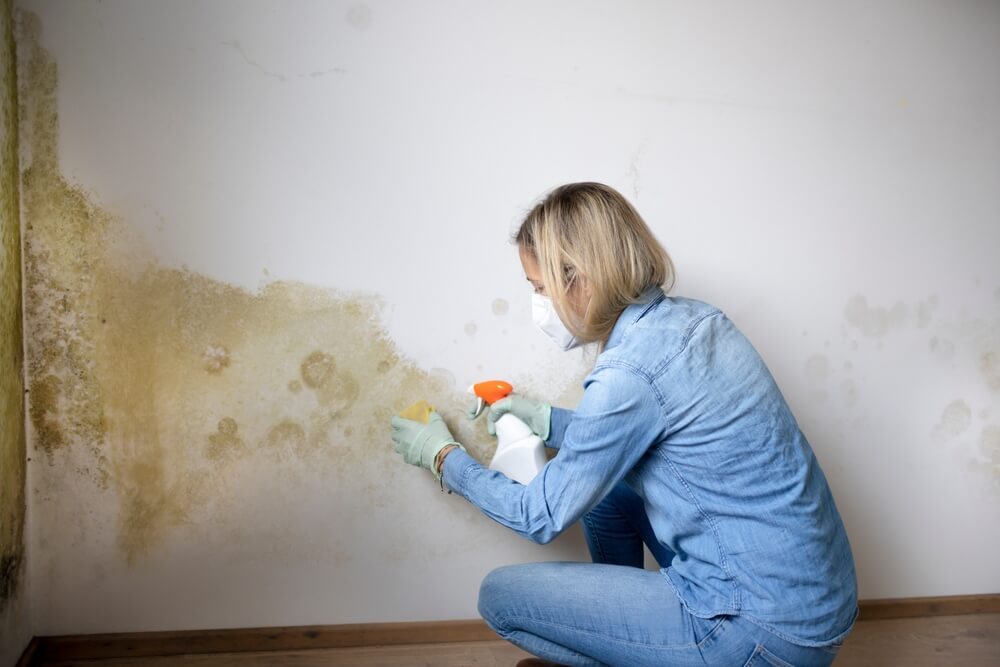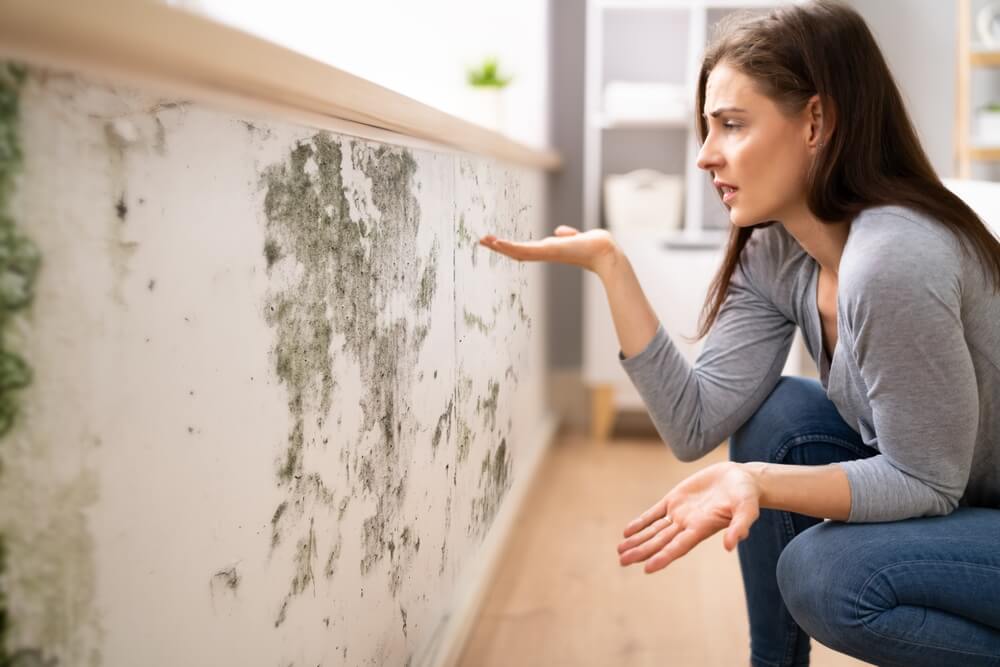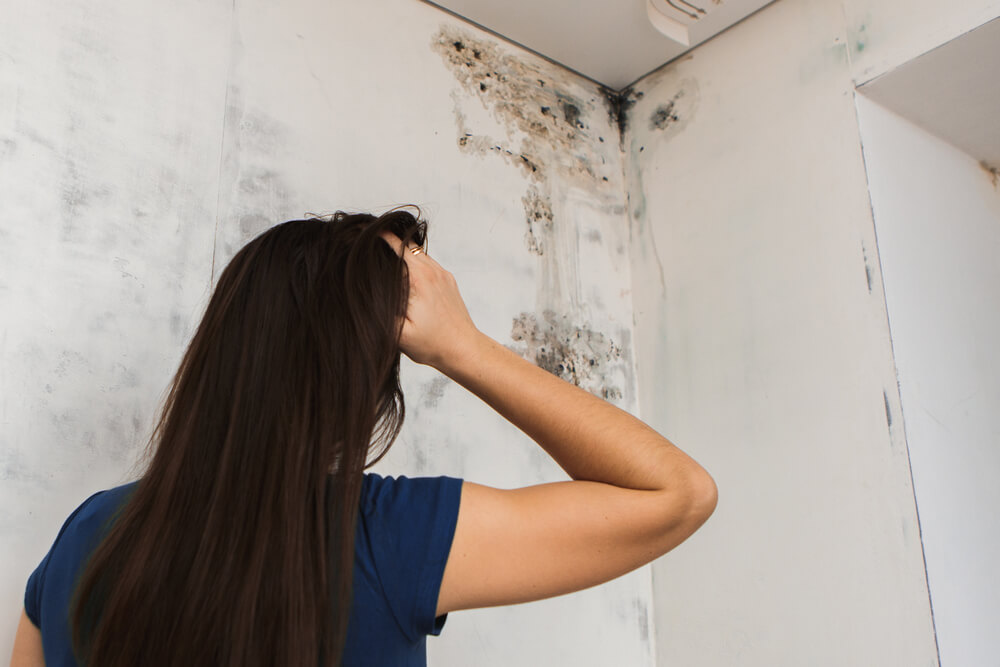Mold is a common element in our environment, present both indoors and outdoors. While most people coexist with mold without any adverse effects, others may experience mold allergy symptoms, leading to discomfort and health issues.
In this comprehensive guide, Dr. Bassem Chaine, MD, and his expert team of allergists in Miami will delve into the nuances of mold allergies, understand the symptoms, and explore the ways an allergy specialist in Miami can assist in managing and alleviating these concerns.
What Are Mold Allergies?

Mold allergies are hypersensitive reactions to mold spores, microscopic particles released by mold as part of their reproductive process. Mold spores can be found in the air, and when inhaled by susceptible individuals, they trigger an immune response. The immune system perceives these spores as harmful invaders, leading to the release of chemicals such as histamines that cause the symptoms associated with mold allergies.
Common Mold Allergy Symptoms
Respiratory Issues
Persistent Coughing:
Persistent coughing is a hallmark symptom of mold allergies. Mold spores, when inhaled, can irritate the respiratory tract, leading to coughing. This persistent cough is often dry and may worsen in environments with high mold concentrations, making it an important clue for individuals suspecting mold-related respiratory issues.
Sneezing:
Sneezing is the body’s natural response to foreign particles, and mold spores are no exception. Individuals with mold allergies may experience frequent sneezing as their immune system attempts to expel the irritants. This constant sneezing can be bothersome and disruptive to daily life.
Runny or Stuffy Nose:
Mold spores can trigger an inflammatory response in the nasal passages, resulting in a runny or stuffy nose. This symptom is akin to the common cold but may persist or worsen in environments where mold is prevalent. Chronic nasal congestion can affect one’s ability to breathe comfortably and lead to other complications if left unaddressed.
Shortness of Breath:
In more severe cases, mold allergy symptoms can escalate to shortness of breath. This occurs as the airways become constricted due to inflammation, making it difficult for individuals to breathe normally. Shortness of breath is a concerning symptom that warrants prompt attention from a healthcare professional.
Wheezing:
Wheezing is a whistling or squeaky sound produced during breathing and is indicative of narrowed airways. Mold allergies can contribute to wheezing, particularly in individuals with pre-existing respiratory conditions such as asthma. Monitoring for wheezing is crucial, and any signs of respiratory distress should prompt immediate medical evaluation.
Eye Irritation
Red, Itchy, or Watery Eyes:
Mold spores are airborne particles that can come into contact with the eyes, leading to irritation. Symptoms like redness, itching, or excessive tearing are common in individuals with mold allergies. Addressing these symptoms involves not only managing the underlying allergy but also avoiding direct exposure to mold and maintaining good eye hygiene.
Swelling Around the Eyes:
Prolonged exposure to mold allergens can result in localized inflammation, leading to swelling around the eyes. This swelling, known as periorbital edema, can contribute to a tired and puffy appearance. It is a visual manifestation of the body’s immune response to mold exposure.
Sensitivity to Light
Mold allergy sufferers may experience increased sensitivity to light, a condition known as photophobia. This sensitivity can exacerbate eye discomfort and may be accompanied by other visual disturbances. Seeking shade and wearing sunglasses can help manage this symptom and provide relief.
Skin Reactions:
Skin Rash or Hives:
Skin reactions are not uncommon in individuals with mold allergies. Exposure to mold spores can lead to the development of a rash or hives on the skin. These reactions vary in severity and appearance, ranging from mild redness to raised, itchy welts. Identifying and avoiding the source of mold is crucial to preventing recurrent skin reactions.
Itching:
Generalized itching, known as pruritus, is a common skin symptom associated with mold allergies. This itching can occur on any part of the body and may be accompanied by a tingling sensation. Scratching should be minimized, as it can exacerbate skin irritation and potentially lead to secondary infections.
Headache and Fatigue
Headaches:
Headaches are a frequent complaint among individuals with mold allergies. The exact mechanism isn’t fully understood, but it is believed that the inflammatory response triggered by mold exposure can contribute to headaches. These headaches can range from mild to severe and may be accompanied by other neurological symptoms.
Fatigue:
Chronic exposure to mold allergens can lead to persistent fatigue. The body’s continuous immune response to mold spores can be draining, both physically and mentally. Individuals experiencing mold-related fatigue should prioritize rest, manage their allergy symptoms, and seek professional advice to address underlying causes.
General Malaise:
General malaise refers to a vague sense of discomfort or unease. Mold allergies can contribute to this overall feeling of being unwell. It may include a combination of physical and psychological symptoms, further emphasizing the importance of addressing mold exposure and managing allergy symptoms comprehensively.
Recognizing Allergic Reactions to Mold
Understanding whether your symptoms are due to mold allergies requires careful observation. If you notice that your symptoms worsen in damp or humid environments or during certain seasons, it could be an indication of mold allergy. Additionally, keeping a diary of symptoms and their triggers can provide valuable information for your allergy specialist.
Living in Miami: Mold Allergy Hotspot:
Miami’s warm and humid climate provides an ideal breeding ground for mold. From household dampness to outdoor spaces, mold can thrive in various environments. Common indoor sources include bathrooms, kitchens, and basements, while outdoor mold can be found in decaying vegetation and damp soil. Miami residents, therefore, need to be particularly vigilant about mold exposure and its potential health impacts.
How to Manage Mold Allergies
Identify and Remove Mold Sources
Conduct a thorough inspection of your living spaces to identify and eliminate mold sources. Repair any water leaks promptly, use dehumidifiers, and ensure proper ventilation in bathrooms and kitchens.
Regular Cleaning
Keep your living spaces clean, paying special attention to areas prone to mold growth. Regular dusting, vacuuming, and cleaning with mold-inhibiting products can help minimize your exposure.
Allergy-Proof Your Home
Invest in allergen-proof bedding, use air purifiers with HEPA filters, and consider using an air conditioner to filter out mold spores.
Outdoor Precautions
Limit outdoor activities during high-mold seasons, especially on windy days. If outdoor molds are a significant trigger, wearing sunglasses and a hat can provide some protection.
When to Consult an Allergy Specialist
If mold allergy symptoms persist despite taking preventive measures, seeking the expertise of an allergy specialist is crucial. In Miami, where mold is prevalent, specialized knowledge is vital for accurate diagnosis and effective management. An allergy specialist can perform tests to identify specific allergens, recommend appropriate medications, and provide personalized advice on minimizing exposure.
Medical Intervention for Mold Allergies
Antihistamines
Over-the-counter or prescription antihistamines can help alleviate common mold allergy symptoms by blocking the effects of histamines released during an allergic reaction.
Nasal Corticosteroids
These prescription medications reduce inflammation in the nasal passages, addressing congestion and other nasal symptoms associated with mold allergies.
Immunotherapy

For severe cases or those unresponsive to other treatments, immunotherapy may be recommended. This involves exposing the individual to small amounts of the allergen over time to desensitize the immune system.
Taking Control of Mold Allergy Symptoms in Miami
Living with mold allergies in a humid environment like Miami can be challenging, but with proper awareness and management, it is entirely possible. Recognizing mold allergy symptoms, taking preventive measures, and seeking professional help when needed are crucial steps toward controlling the impact of mold on your health. If you suspect mold allergies are affecting you, don’t hesitate to consult with an allergy specialist in Miami. Their expertise can make a significant difference in providing relief and improving your overall quality of life.
That said, you can always feel free to schedule a consultation with our team of experts.


